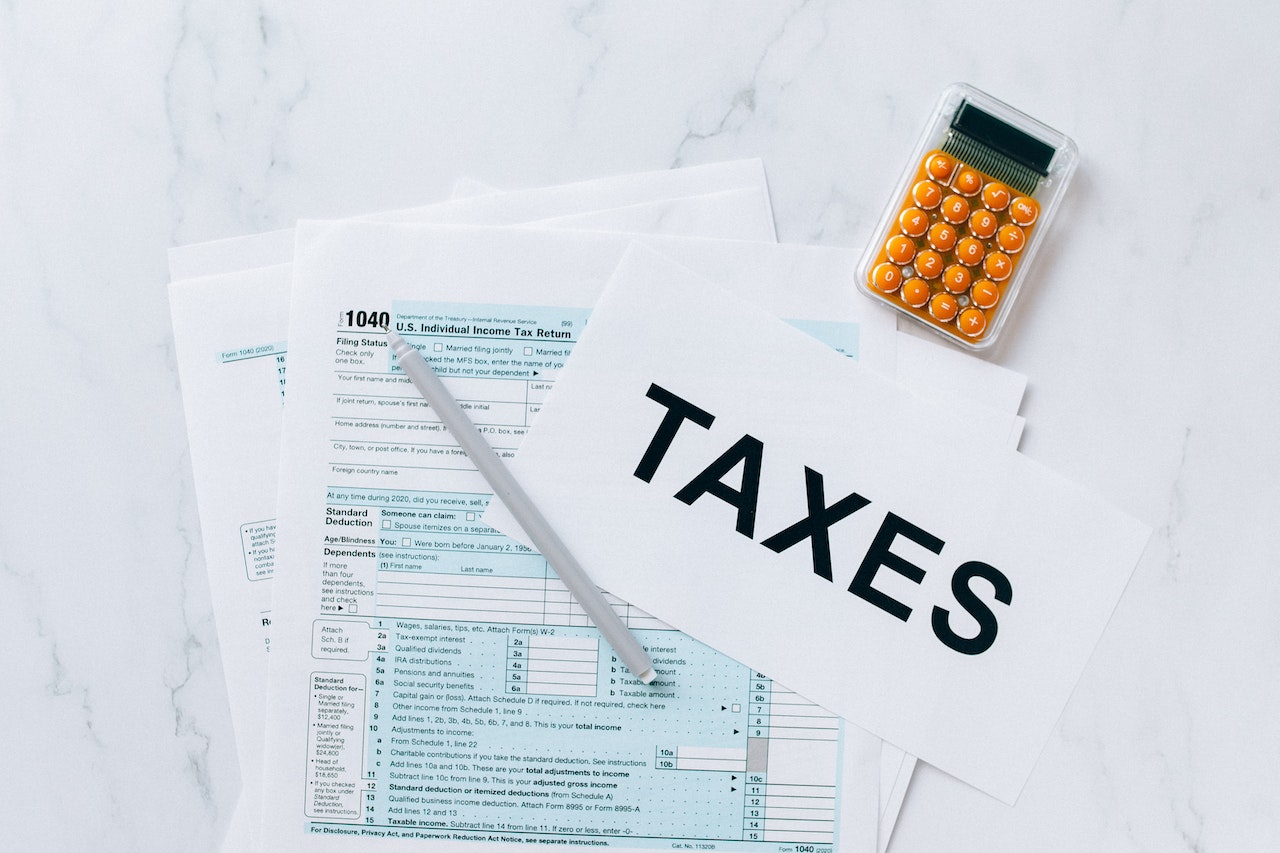When you sell an asset for more than you paid for it, the difference is called a capital gain. This applies to investments such as stocks, bonds, and real estate, as well as collectibles and works of art. If you earn a capital gain, the IRS wants its share! In this blog post, we will discuss how capital gains tax works and what you need to do in order to file your taxes correctly.

Capital gains tax is a type of income tax that applies to the profit from selling assets, such as stocks, bonds, or real estate. The amount you pay in capital gains taxes depends on how long you’ve held the asset and your current tax rate. Also, different assets are subject to different rates of taxation. For example, long-term capital gains on assets such as stocks and bonds are taxed at a lower rate than short-term gains.
Capital gains tax is typically calculated as the sale price minus your original purchase price, which essentially represents your profit from the sale. However, you can only subtract your original purchase price if you’ve held the asset for more than one year. Thus, capital gains that occur within a year of buying an asset are taxed at a much higher rate than those that occur after holding an asset for longer periods of time.
Some types of assets also have their own individual tax rates for calculating income generated from their sale. If you are wondering if you need to pay tax under the Bright Line Test then likely you do, however, if the asset has been held for longer than this you might qualify as complying with the Bright Line test at which point there will be no capital gains tax payable. This is a very complicated topic and we highly recommend speaking with a tax professional to fully understand your individual situation.
Filing your capital gains taxes can be a bit of a headache because there are many different factors that come into play when determining the amount you owe. You will need to calculate your cost basis for each asset, which is essentially just the original purchase price plus any additional funds you have put into the asset over time. You will also need to determine if the profit from selling an asset meets certain criteria, known as the exclusion ratio for long-term assets held for more than one year or short-term assets held for less than one year. If you meet these qualifications, you can file your capital gains taxes by filling out a 1040 tax form and reporting your gains in the appropriate section.
If you are unsure how to file your capital gains taxes or need additional information about the different rates and qualifications, it is best to speak with a qualified accountant or tax professional. They will be able to help you understand all of the factors that go into calculating your tax bill and guide you through the process of filing correctly. Overall, capital gains taxes are a complex topic and it is critical that you work with someone who understands these nuances so that you can be sure you are paying what you owe rather than overpaying or underpaying.
This depends on your individual situation. For example, if you sold an asset in the same calendar year that you bought it, then there is no reason for you to file a separate tax return for this transaction. However, if you have held the asset for longer than one year or plan to sell an asset before the end of the year, then it is important to know whether or not your profit will be considered taxable income. Filing a capital gains tax return can help ensure that all of your profits are reported properly and that you do not owe any additional taxes. To learn more about whether or not you need to file a capital gains tax return, speak with a qualified accountant today.
The process of reporting capital gains or losses will depend on the particular transaction you are filing. For example, if you sold an asset such as a stock or bond, then you would typically report your profit using IRS form 8949 and 1040 Schedule D. On the other hand, if you sold real estate in 2017, then you might need to fill out a 1065 Partnership Returns Form for your business. In any case, it is important to accurately record all of your transactions so that everything is accounted for properly and so that there are no surprises when tax time rolls around. To learn more about how to report capital gains and losses, speak with an accountant or tax professional today.
The amount of capital gains taxes that you owe is based in large part on your current tax bracket. Thus, people in higher income tax brackets will pay higher rates on any profits from their sales. Other factors that can affect your capital gains tax rate include whether or not you’ve experienced other types of income within the same year, such as interest payments or any compensation for employment. Many taxpayers opt to avoid these complications by simply paying the standard capital gains tax rate for long-term investments, which is 20%.
However, if you believe that your rate will be significantly higher than this based on other income sources, it might make sense to seek out a tax professional who can help you navigate these complexities and pay the minimum amount possible.

By using these tips, you can understand the basics of capital gains taxes, report any transactions accurately, and ensure that you are paying only the amount of money that is required by law. Additionally, if you have additional questions or want to learn more about filing your own taxes, be sure to speak with a qualified accountant or tax professional today. With their guidance, you will be able to file a seamless tax return and enjoy peace of mind when it comes to your finances.





